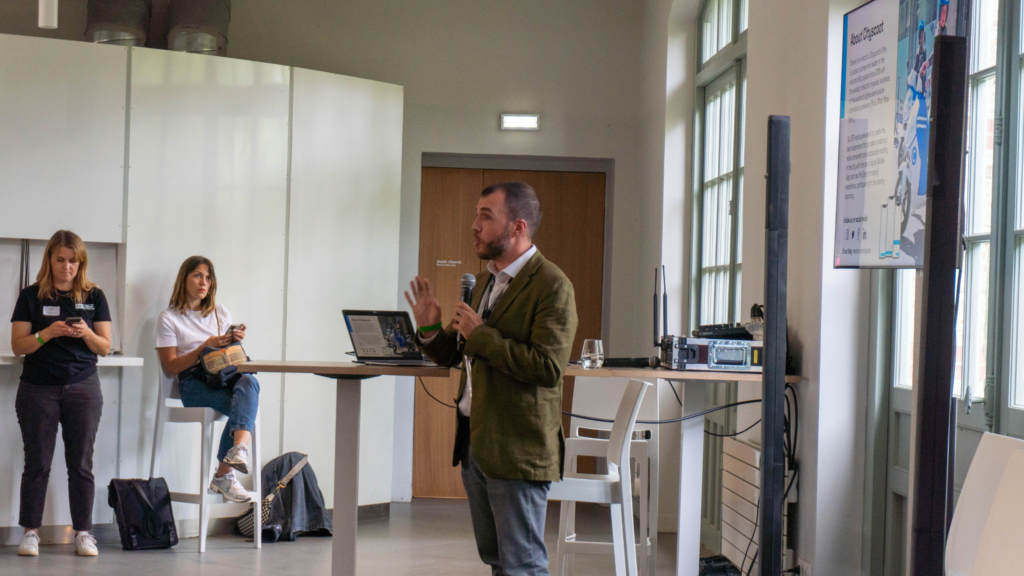This article retraces the conference of César Miguel, Chief Product & Technology Officer at Cityscoot, during the first edition of UX-Conf – Human First. This conference focuses on the implementation of a conversational agent as part of a project at Cityscoot and develops the theme of AI.
Why is it important to integrate a conversational solution?
The evolution of conversational experiences has been dramatic over the past few years. Chatbots, or automated conversational agents, present one of the first steps toward automated communication between humans and machines. Indeed, human-machine interactions take place via an interface (phone, tablet, computer, etc.). Over time, users want to limit interfaces in order to have truer contact with the machine. From now on, Man wants to talk, laugh, interact with the machine as with a human.
Difference between AI and GenIA
During the conference, César Miguel recalls the important difference between traditional AI and gen AI.
- Traditional Artificial Intelligence (AI) refers to computer systems capable of performing intellectual and specific tasks.
- The Generation of Artificial Intelligence (genIA) refers to the process of creating and improving AI algorithms through machine learning methods. The goal is not to complete a task but to propose a most likely answer (based on statistics). This is then a non-specific task.
AI is the end result, while genIA is the process of developing these AI systems. In short, AI is the application, while genIA is the means to get there.
The Cityscoot case
Cesar Miguel then explains the solution developed to sort and analyze feedback during his experience at Cityscoot.
Originally, each user can leave a review at the end of a race. Before implementing a solution, Cityscoot teams only have a quantitative vision of the results: the number of positive reviews and the number of negative reviews.
Then, the solution is deployed and aims to ask ChatGPT to classify the data in order to identify the main problems reported by users. This allows Cityscoot teams to analyze qualitative data. This allows them to process user feedback more easily.
At the same time, the solution allows you to send a contextualized email to the user once their opinion has been submitted.
The limits of AI in this case
The use of GPT chat reaches its limits because the emails written are only based on information collected before 2021.
The tool sometimes offers a refund or a reminder of the brand to the Internet user via an email. The creation of prompts made it possible to set limits on reactions to avoid this type of situation.
The result of this practice
This tool allows Customer Relations teams to obtain much more qualitative information on user feedback. This feedback makes it possible to detect technical problems on certain equipment more quickly. Around 2 out of 3 users are satisfied with the email sent by the virtual assistant.
Some important points about genAI
In conclusion of the Cityscoot case, César Miguel highlights several important points:
- Confidentiality: the deployed solution must respect the confidentiality of user data
- The importance of the result: in this case, the teams do not mastered not the email sent
- Beware of discrimination bias
- What future ? Legislation is likely to evolve in the next 2 years at the level of the European Union
Romane Azède, Traffic manager and Baptiste Herault, Team Leader Traffic Manager – UX-Republic

